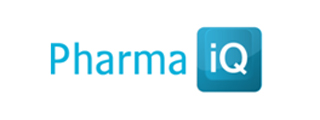regulatory compliance (11)
In the modern business landscape, regulatory compliance is not just a legal obligation but a cornerstone of sustainable and ethical operations. Over the past decade, the volume of laws, regulations, standards, and guidelines has increased dramatically, affecting every industry from healthcare to finance. Regulatory change management software has become an indispensable tool in this context, helping businesses navigate the complex and ever-evolving regulatory environment efficiently and effective
In an era where digital transformation is not just an option but a necessity, the insurance industry stands at a crucial juncture. The need for robust insurance regulatory compliance has never been more pressing. The stakes are high as insurers handle sensitive customer data and navigate a complex web of regulations. Cybersecurity is not just a technical issue; it's a cornerstone of trust in the digital age.
Much like the banking industry, the insurance sector is undergoing a major shift. Consum
Enterprise Risk Management (ERM) in the insurance industry represents a comprehensive approach to identifying, assessing, and strategically managing an organization’s risks. This practice is not just a regulatory requirement but a fundamental aspect of maintaining financial stability and safeguarding the interests of policyholders.
At its core, ERM in the insurance sector involves a series of steps to understand and mitigate risks. These steps include identifying, assessing, and mitigating poten
In the advanced world of finance, maintaining a clean schedule is crucial. Financial organizations conduct business within a web of regulations and legal standards, making compliance management a pivotal aspect of their operations. Regular compliance checkups are a regulatory requirement and a proactive measure to safeguard the organization’s reputation and operational integrity.
These checkups ensure the organization is on the right side of the law and meets regulatory expectations that often ex
Organizations need help keeping up with regulatory changes and maintaining compliance across all operations in today's complicated and ever-changing regulatory world. Manual compliance management systems are time-demanding and prone to mistakes and inefficiencies. This is where regulatory change management software may help.
The software enables firms to efficiently manage regulatory changes while minimizing risks and enhancing overall compliance effectiveness by automating and simplifying compli
Regulatory change management software automates the procedures, documentation, and analytics necessary to keep firms up to speed with the latest regulatory changes. This software detects new regulatory changes and initiates business operations to ensure company-wide compliance.
RCM solutions are typically adopted as part of a more extensive governance, risk, and compliance project. Compliance officers mainly use the software, although managers and staff in highly regulated sectors like finance, q
|

